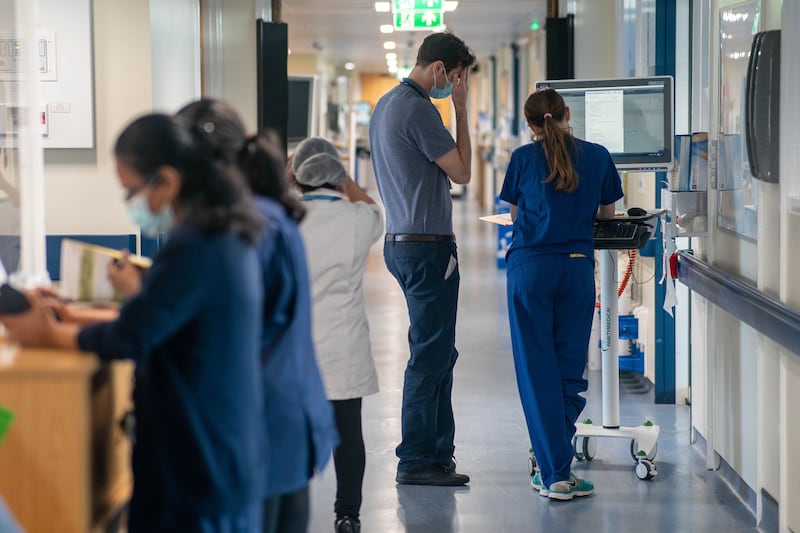IT HAS been known for a long time now that the national health service is under severe pressure – all sections of the service.
We have been warned that a shortage of general practitioners will lead to some rural areas not being adequately served. Accident and emergency departments in all hospitals are regularly under severe pressure. More recently there have been warnings about the ambulance service's ability to meet response times.
In the past couple of weeks a number of warnings were issued by doctors from A&E departments urging people to only use these services when absolutely necessary, particularly over the traditionally busy Christmas and New Year periods.
Yesterday a spokesman for the Northern Ireland Ambulance Service warned that it was facing "a sustained period of increased demand" over this festive period. There were reports of waits of up to 34 hours for patients requesting an ambulance.
By any standard this must be described as a crisis. Not only do we have A&E departments warning of a potentially long wait for treatment, we are now being told that people would could wait about a day and a half for an ambulance to take them to the hospital in the first place.
The advice to the public is to basically consider other sources of treatment such as attending a general practitioner or even a pharmacist and only to attend an A&E department in an absolute emergency.
Anyone who has had to visit an emergency room will probably have looked at fellow patients and thought that they really should not be there. People who are looking for prescriptions or who present with minor cuts and bruises. Certainly they should look for other alternatives which would take the pressure off this crucial service but would probably ensure that they are treated more quickly anyway.
The problem with this advice is that most members of the general public do not have medical experience and many not be able to tell the difference between a heart attack and heartburn or they may think they have a minor if painful digestive problem rather a potentially life-threatening condition of the bowel or colon.
Yes, there are people who really should know better than to go to the hospital at this time of year but one wonders how many people will convince themselves that they are probably all right rather than face an interminable wait to be seen, especially in the light of such appeals.
The real answer to this problem is to increase funding and therefore improve the service available.







